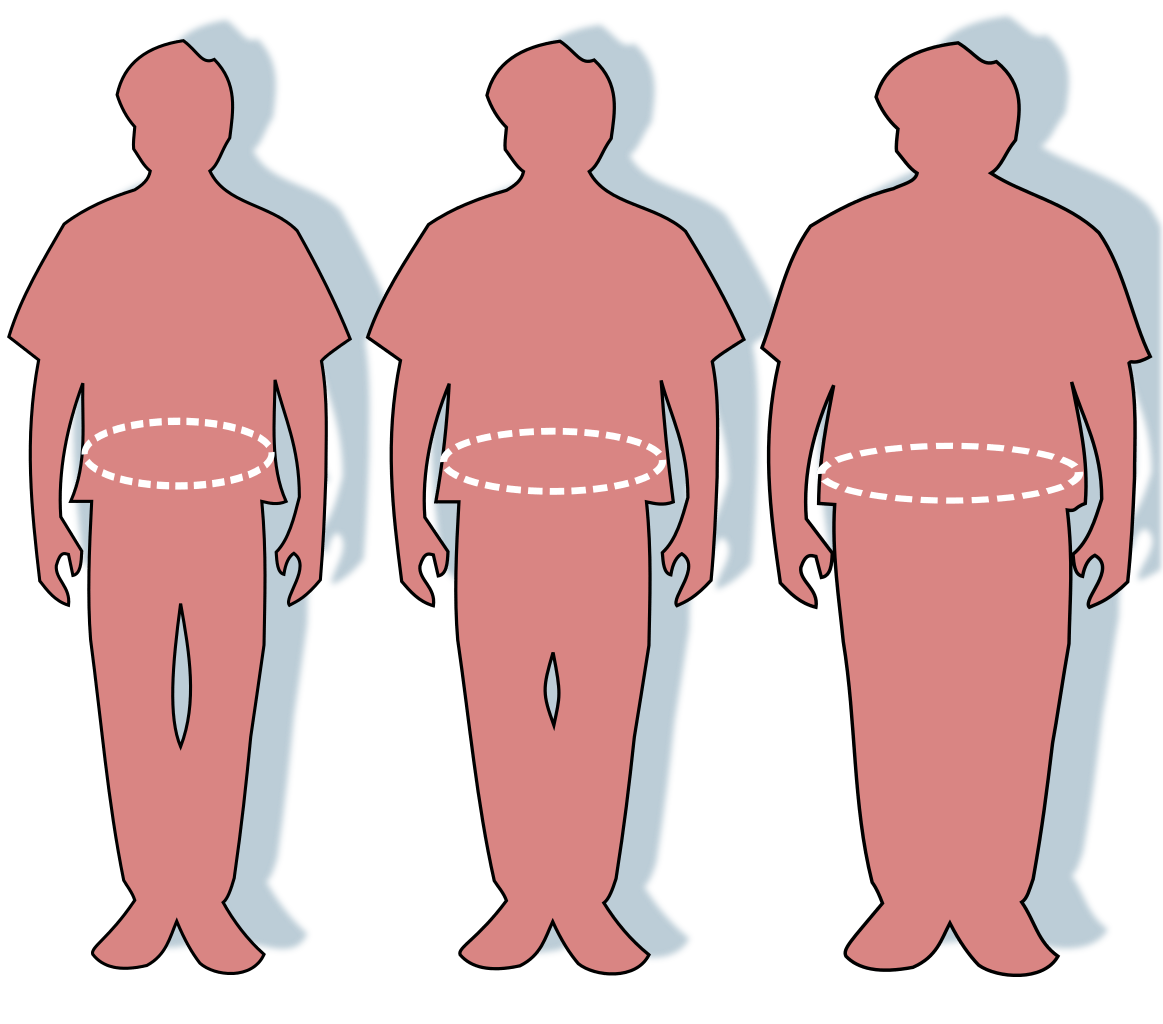We Americans are getting even more supersized than ever. More than one third of all adults and 16 percent of all children are obese, according to just-released government statistics.
This puts 26.1 percent of the overall population at accelerated risk of cardiovascular disease, Type 2 diabetes and certain types of cancer because of their excess weight.
Obesity numbers inching upwards
Those numbers keep inching upwards, up .5% from 25.6% in 2007 to 26.1% in 2008.
Even more shocking, the CDC says more than two-thirds of American are overweight (defined as a body mass index of 25 or more).
African-Americans bear the greatest burden of the obesity epidemic, with 80 percent of African-American women either overweight or obese and a 51 percent obesity rate, followed by Mexican-American women with an overweight/obesity rate of 73%.
Obesity is defined by the Centers for Disease Control and Prevention (CDC) as a body mass index of 30 or higher.
[Find a Body Mass Index (BMI) calculator based on height and weight.
Causes of obesity, according to conventional docs
Conventional medical doctors attribute this alarming increase to our transformation into a nation of fast-food chomping couch potatoes.
There is certainly some truth to that as recent statistics show that two-thirds of us eat less than two servings of fruit a day and 73% of us don’t get the minimum three servings of vegetables, the foundations of a healthy diet. Sadly, those statistics actually include French fries as a vegetable!
And 37 percent of us admit that we do not engage in any physical activity or exercise at all.
We know there is no “magic bullet,” or magic pill that will cause you to shed pounds overnight.
Underlying cause: systemic imbalances
However, a variety of biological imbalances can cause overeating and slow metabolism, according to Dr. Hyla Cass, who wrote 8 Weeks to Vibrant Health: A Take Charge Plan for Women (Take Charge Books 2008) with me.
“Conventional doctors are thinking in a linear manner; that is calories ingested minus calories burned = leftover calories that turn into fat,” says Dr. Cass. “There`s far more to weight gain than that, since we all burn calories differently based on our individual body`s metabolic efficiency.”
Dr. Cass urges her patients to look at their food intake and their exercise out put and ask themselves, “If you`re eating too much , why? If you’re not exercising enough, why not?”
The answer clearly lies in a systemic imbalance, she says.
Among the causes of overweight, says Dr. Cass, are hormonal fluctuations, thyroid malfunction chronic adrenal overload, unbalanced blood sugar food allergies, neurotransmitter imbalances that lead to uncontrolled food cravings and even bad genetics.
Finally, Dr. Cass says, explore the possibility you have one of these systemic imbalances and find a health care practitioner who will help.
“You are not to blame if you are overweight. But you`re responsible for taking the steps to solve the problem.”
Sources:
http://www.cdc.gov/obesity/data/trends.html
http://www.cdc.gov/NCCdphp/publications/AAG/obesity.htm
http://www.cdc.gov/obesity/defining.html
http://www.cdc.gov/mmWR/preview/mmwrhtml/mm5610a2.htm
http://famellist.info/?p=29404







